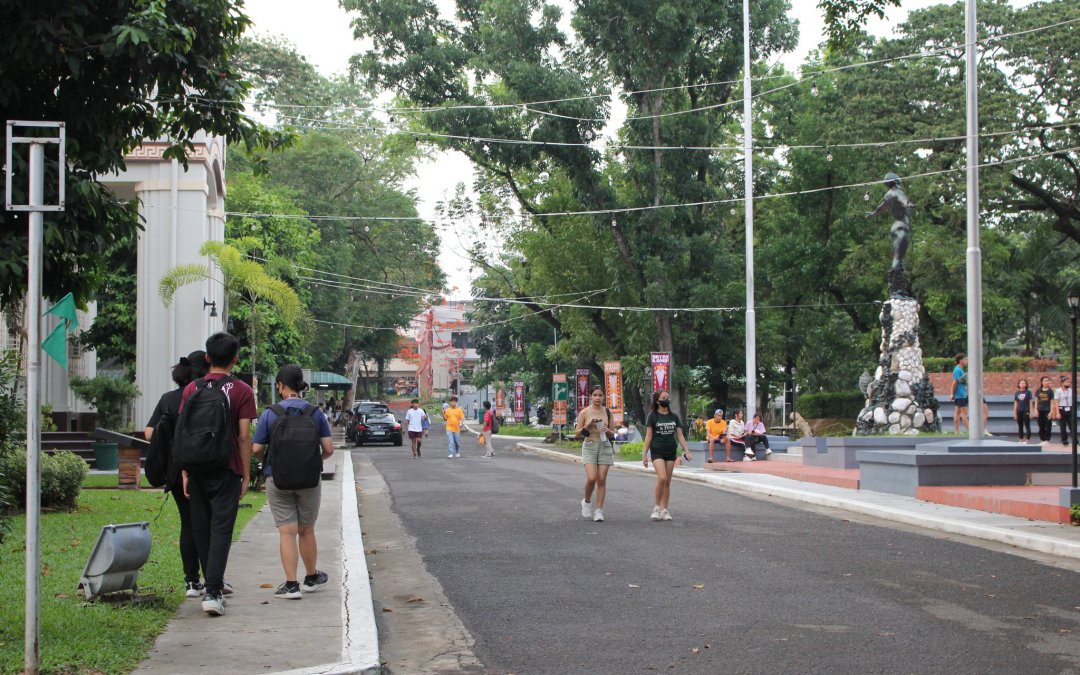Many college students in the Philippines devote a significant amount of time and effort to selecting their attire for class, albeit to varying degrees. But the task becomes more daunting for some when they must navigate the strictures of dress codes.
In my case, it only gets challenging when I must choose between arriving late for my 7:30 a.m. class while looking put-together, or be punctual, yet look like something our campus cat dragged in. Thankfully, as a student at the University of the Philippines Cebu, I enjoy the freedom of expression that comes with the institution’s ‘no dress code’ policy.
The University of the Philippines is widely recognized for granting its students the privilege of a ‘no dress code’ policy. This allows their students to express their individuality and freedom through their attire.
Wandering the grounds as a freshman at UP Cebu, sans dress code, has been liberating to say the least. This sense of freedom is intensified when I spot a few students proudly rocking their pajamas at the canteen. What’s more, my professors don’t bat an eyelash at our varied school attire and fabulous hair colors that could complete a color wheel. Knowing that there will be no judgment nor policing of attire by anyone at UP, attending my classes feels more at ease.

Trista Malanguis, a fellow UP freshman, put it this way, “This policy allows me to feel more comfortable and it puts an end to insecurity. I have control over what I get to wear and how I wear it.” The absence of judgment that UP students enjoy led me to explore deeper into how this policy has further impacted its students.
Among the other benefits of this policy, as cited by UP Cebu (UPC) students, is its financial advantage. Trista shared, “I believe it helps so much in regards to the students’ financial situations. If there were a dress code in UP, buying not just one set of uniform, but maybe two or more would be necessary.”
Another UPC student, Kamila Quisha, said, “You know, there are students in UP whose monthly allowances are barely enough for their food and living expenses. It’s not as costly as uniforms… we buy clothes that we can wear anytime, anywhere we want.” Jarrod Owen, also from UPC, concurred, “I believe this policy is especially beneficial to students like myself who rely on thrift shopping and love to buy outfits that fit my aesthetic.”
UPC students have further reflected on how the policy has positively impacted their mental health. As Kamilah Quisha, a UPC student, mentioned, “There are times when people feel euphoric because they can present themselves to the world in the physicality they want, and clothes are one way to express this.” Jarrod Owen concurred, stating, “Yes, what we wear heavily influences our confidence and mood for the whole day. What you present is what you feel.”

Additionally, this policy has reportedly enhanced the learning and productivity of students by increasing their comfort and minimizing distractions. According to Trista, “It is conducive as it allows us to wear comfortable clothes that don’t distract us from studying. It encourages class attendance since one can dress as they please.” Kamilah Quisha added, “Students can deliver quality outputs when they are most comfortable in what they’re wearing.” Mary Raboy, a student from the University of San Carlos where a uniform policy is enforced, echoed a similar sentiment, “The student’s comfort and productivity hold more importance than appearance.”
However, Mary emphasized that a dress code does have its benefits, such as “having a more cohesive school environment as well as uniformed implementation of rules.” Celina Salaza, also from USC, added, “It helps in creating a professional and formal environment.” While Mary understands her university’s implementation of the dress code policy, she suggested, “I would want it to be more accommodating, especially for the Philippine climate.”
Undoubtedly, UP’s ‘no dress code’ policy has contributed to the overall well-being of its students. From unconventional outfits to sensible attires, whether it’s slippers or heels, or even rainbow-colored hair, UP’s professors and administrators remain unfazed. Indeed, diversity and inclusivity are the norm in UP, complementing the environment of academic freedom that UP takes pride in.

